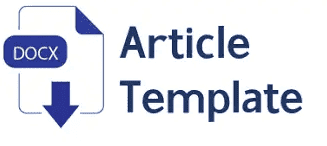Adaptive Governance Frameworks for Disaster Risk Reduction in Coastal Ternate
DOI:
https://doi.org/10.71435/639060Keywords:
Adaptive Governance , Disaster Risk Reduction , Community Resilience , IndonesiaAbstract
Purpose: This take a look at examines the position of adaptive governance frameworks in catastrophe chance reduction efforts in coastal Ternate and the village of Pangkalan Jati in Sumatra, Indonesia.
Subjects and Methods: Through a combined-methods technique integrating qualitative interviews and quantitative surveys, the study explores the effectiveness of governance systems and their effect on network resilience. Descriptive records reveal demographic characteristics, perceptions of governance effectiveness, and stages of catastrophe preparedness among individuals. Inferential analyses, which includes paired-samples t-checks, regression analyses, ANCOVA, and Pearson correlational analyses, elucidate the relationships between governance effectiveness, socio-economic elements, and disaster preparedness rankings.
Results: The findings underscore the significance of transparency, network engagement, adaptability, income, and education level in selling catastrophe resilience.
Conclusions: Ultimately, implementing adaptive governance frameworks that foster collaboration and inclusivity is essential for mitigating catastrophe risks and building sustainable groups in coastal regions.
References
Boston, M. (2023). Perceptions of the Effects of Restraint and Seclusion on School Staff: A Qualitative Inquiry (Doctoral dissertation, The George Washington University).
Brass, I., & Sowell, J. H. (2021). Adaptive governance for the Internet of Things: Coping with emerging security risks. Regulation & Governance, 15(4), 1092-1110. https://doi.org/10.1111/rego.12343
Camacho, A. E. (2009). Adapting governance to climate change: managing uncertainty through a learning infrastructure. Emory lj, 59, 1.
Carey, P. (2021). On His Netherlands Majesty’s Service: The Remarkable Journeys of the Dutch Corvette-of-war Pollux in the Indies/Indonesia and Around the World, 1824-1838. Archipel. Études interdisciplinaires sur le monde insulindien, (102), 19-64. https://doi.org/10.4000/archipel.2619
Koliba, C. J., Mills, R. M., & Zia, A. (2011). Accountability in governance networks: An assessment of public, private, and nonprofit emergency management practices following Hurricane Katrina. Public Administration Review, 71(2), 210-220. https://doi.org/10.1111/j.1540-6210.2011.02332.x
Liswanty, I., & Prabowo, H. Y. (2021). Transparency and accountability mechanisms for disaster management funds: A case study. Journal of Contemporary Accounting, 12-24. https://doi.org/10.20885/jca.vol3.iss1.art2
Mendes, J. M., Kalonji, G., Jigyasu, R., & Chang-Richards, A. (Eds.). (2021). Strengthening Disaster Risk Governance to Manage Disaster Risk. Elsevier.
Menéndez-Pedriza, A., Navarro-Martín, L., & Jaumot, J. (2023). A novel multivariate curve resolution based strategy for multi-omic integration of toxicological data. Chemometrics and Intelligent Laboratory Systems, 242, 104999. https://doi.org/10.1016/j.chemolab.2023.104999
Najafi, M. R., Zhang, Y., & Martyn, N. (2021). A flood risk assessment framework for interdependent infrastructure systems in coastal environments. Sustainable Cities and Society, 64, 102516. https://doi.org/10.1016/j.scs.2020.102516
Olutola, N. (2023). Collaborative Economic Governance: Fostering Partnerships for Collective Success. Journal Development Manecos, 1(2), 60-67.
Osorio Piñeros, J. D. (2020). Technocracy, disaster risk reduction and development: A critique of the Sendai Framework 2015-2030. Revista Derecho del Estado, (47), 319-342.
Puli, J., & Sagi, S. (2022). Job satisfaction of women employees in different organizational work culture. Journal of Information and Optimization Sciences, 43(7), 1601-1621. https://doi.org/10.1080/02522667.2022.2133206
Ramezani, J., & Camarinha-Matos, L. M. (2020). Approaches for resilience and antifragility in collaborative business ecosystems. Technological forecasting and social change, 151, 119846. https://doi.org/10.1016/j.techfore.2019.119846
Renn, O. (2020). Risk communication: Insights and requirements for designing successful communication programs on health and environmental hazards. In Handbook of risk and crisis communication (pp. 80-98). Routledge.
Scheffran, J., & Battaglini, A. (2011). Climate and conflicts: the security risks of global warming. Regional Environmental Change, 11(Suppl 1), 27-39. https://doi.org/10.1007/s10113-010-0175-8
Shao, S., Hu, Z., Cao, J., Yang, L., & Guan, D. (2020). Environmental regulation and enterprise innovation: a review. Business strategy and the environment, 29(3), 1465-1478. https://doi.org/10.1002/bse.2446
Shulla, K., Voigt, B. F., Cibian, S., Scandone, G., Martinez, E., Nelkovski, F., & Salehi, P. (2021). Effects of COVID-19 on the sustainable development goals (SDGs). Discover Sustainability, 2, 1-19. https://doi.org/10.1007/s43621-021-00026-x
Singh, R. N. (2022). Dead in Banaras: An Ethnography of Funeral Travelling. Oxford University Press.
Woods, C. T., McKeown, I., Rothwell, M., Araújo, D., Robertson, S., & Davids, K. (2020). Sport practitioners as sport ecology designers: how ecological dynamics has progressively changed perceptions of skill “acquisition” in the sporting habitat. Frontiers in psychology, 11, 654. https://doi.org/10.3389/fpsyg.2020.00654
Youssef, Y. M., Gemail, K. S., Sugita, M., AlBarqawy, M., Teama, M. A., Koch, M., & Saada, S. A. (2021). Natural and anthropogenic coastal environmental hazards: An integrated remote sensing, GIS, and geophysical-based approach. Surveys in Geophysics, 1-33. https://doi.org/10.1007/s10712-021-09660-6
Zhaohong, L. J. N. (2022). Striking The Balance Between Civillian Control And Military Adaptability.






